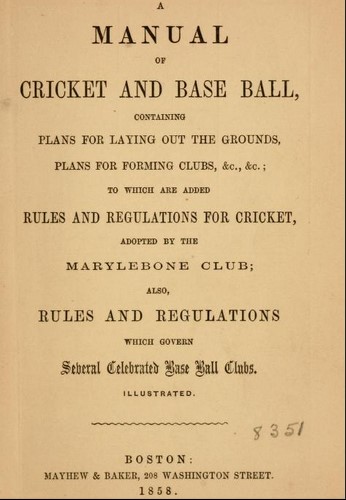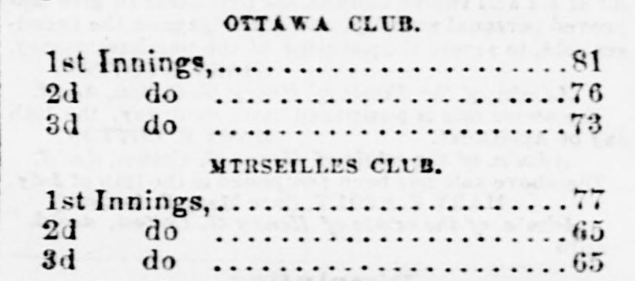An interesting game of base ball was played on Sunday, June 12, between the Peerless and Advance, in which the former were victorious by a score of 30 to 10.
-Missouri Republican, June 13, 1870
The funeral of Mr. D.S. Grant, a soldier of 1812, took place yesterday from the residence of his son, 1107 Chesnut street. There was a large number in attendance. Deceased had attained the ripe age of ninety-four years.
-Missouri Republican, June 13, 1870
Well, I guess if I wanted to tie it all together I can do that.
The New York game of baseball had developed, evolved, and spread across the country to the extent where it was quickly moving from pastime to a business entity in a shorter period of time than the end of World War Two to today. For that matter, the period between the first codification of the rules and 1870 was shorter than the period between the end of the Vietnam War and today. If you think about it like that, you get a sense of how far the game had come in a very short period of time. From my point of view, baseball in 1870 is essentially the modern game. There were some rule variations that still needed to shake out but if you went to a game in 1870, you would have no problem recognizing the game for what it was. And it went from this malleable, bat and ball, safe-haven game to a heavily codified, regulated, and monetized sport in the span of one lifetime. I've never thought about the evolution of the game in that way and the juxtaposition of these two squibs in the Republican helped me to see that.







 RSS Feed
RSS Feed
